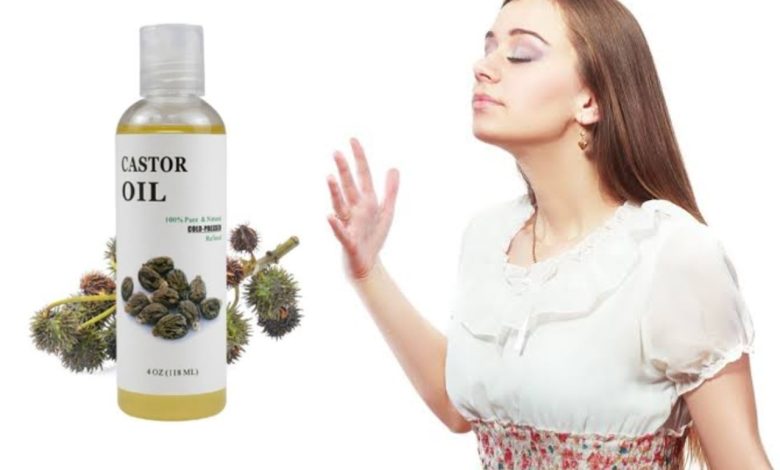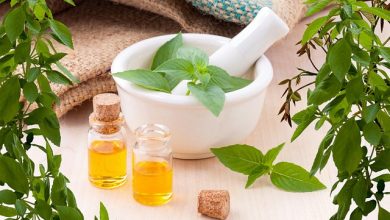What Does Castor Oil Smell Like?

Castor oil is a vegetable oil derived from the seeds of the castor oil plant (Ricinus communis). It is a pale yellow liquid with a distinct odor and a thick consistency. Castor oil has been used for centuries for its various therapeutic and industrial applications.
Here are some common uses and properties of castor oil:
1. Medicinal Uses: Castor oil has long been used in traditional medicine for its medicinal properties. It is rich in fatty acids, particularly ricinoleic acid, which is believed to have anti-inflammatory and antimicrobial properties. Castor oil is often used topically to soothe dry, irritated skin, promote wound healing, and reduce inflammation. It is also used as a laxative when taken orally, although this use should be approached with caution due to its potential side effects.
2. Hair and Scalp Care: Castor oil is a popular ingredient in hair and scalp treatments due to its moisturizing and nourishing properties. It is believed to help promote hair growth, strengthen hair follicles, and reduce scalp irritation. Many people use castor oil as a natural remedy for hair loss, dandruff, and dry scalp.
3. Skin Care: Castor oil is commonly used in skincare products such as moisturizers, lotions, and creams. It is prized for its emollient properties, which help soften and hydrate the skin. Castor oil is often used to treat various skin conditions, including acne, eczema, and psoriasis. It is also used in massage oils and aromatherapy blends for its soothing effects on the skin.
4. Industrial Uses: Castor oil has numerous industrial applications due to its unique chemical composition and properties. It is used as a lubricant in machinery and equipment, as a component in plastics and resins, and as a base for manufacturing paints, varnishes, and coatings. Castor oil is also used in the production of soaps, cosmetics, and perfumes.
5. Natural Remedies: Castor oil is a popular ingredient in natural remedies and home remedies for a wide range of ailments. It is used to relieve constipation, promote detoxification, and support overall digestive health when taken orally. Castor oil packs, which involve applying a cloth soaked in castor oil to the skin, are also used to promote detoxification, reduce inflammation, and relieve pain.
While castor oil offers many potential benefits, it is essential to use it responsibly and with caution and avoid fakes. The issue of counterfeit or fake medicinal castor oil presents significant concerns regarding consumer safety and efficacy. Counterfeit products may lack the therapeutic properties associated with genuine castor oil and could potentially contain harmful substances or contaminants.
Counterfeit castor oil products may not undergo the same quality control standards and manufacturing processes as genuine products. As a result, they may lack the active compounds and therapeutic benefits associated with authentic castor oil. Consumers who unknowingly use fake castor oil may not experience the intended medicinal effects and could be at risk of ineffective treatment.
Fake medicinal castor oil could also pose health risks to consumers, especially if it contains undisclosed ingredients, impurities, or contaminants. Ingesting or applying counterfeit castor oil with unknown compositions could lead to adverse reactions, allergic responses, or toxicity. Consumers may experience skin irritation, digestive discomfort, or other adverse effects due to the presence of harmful substances in fake castor oil products.
What Does Genuine Castor Oil Smell Like?
Genuine castor oil has a distinctive odor that is often described as pungent, earthy, and slightly nutty. It possesses a unique fragrance due to its chemical composition, primarily ricinoleic acid, which gives it its characteristic scent. Here are some characteristics of the smell of genuine castor oil:
1. Pungent: Castor oil has a strong and somewhat sharp aroma that is immediately noticeable upon opening the bottle or container. The pungency of its scent can be attributed to its high concentration of ricinoleic acid and other fatty acids.
2. Earthy: The smell of castor oil is often described as earthy or soil-like, reminiscent of the natural environment where the castor oil plant grows. This earthiness adds depth to the aroma and contributes to its distinctive character.
3. Nutty: Some individuals detect a subtle nutty undertone in the scent of castor oil, which may be reminiscent of roasted nuts or seeds. This nuttiness adds complexity to the aroma profile and can vary depending on factors such as the origin and processing method of the castor oil.
4. Herbal: There is a hint of herbal fragrance in genuine castor oil, which may be reminiscent of dried herbs or botanicals. This herbal note adds a fresh and natural element to the overall scent profile of castor oil.
5. Chemical-Like: In addition to its natural aroma, castor oil may also have a faint chemical-like smell, especially if it has been refined or processed. This odor is typically mild and does not overpower the other aromatic characteristics of genuine castor oil.
Overall, the smell of genuine castor oil is unique and recognizable, characterized by its pungent, earthy, and somewhat nutty aroma. While some individuals may find the scent strong or unusual, it is an inherent feature of castor oil and is indicative of its authenticity and purity.Top of Form
Where to buy genuine Castor oil
To ensure you’re purchasing genuine castor oil, it’s essential to buy from reputable sources that prioritize quality, authenticity, and transparency. Here are some reliable places to find genuine castor oil:
1. Health Food Stores: Many health food stores carry a selection of high-quality natural oils, including castor oil. Look for stores that specialize in organic and natural products, as they are more likely to carry genuine castor oil from reputable brands.
2. Pharmacies and Drugstores: Some pharmacies and drugstores may stock castor oil in their health and wellness sections. Look for well-known brands with a reputation for quality and reliability.
3. Online Retailers: Reputable online retailers can be a convenient option for purchasing genuine castor oil. Look for well-established websites that specialize in natural health and wellness products. Be sure to read customer reviews and check for third-party certifications or quality seals.
4. Certified Organic Brands: Choose castor oil products from brands that are certified organic by reputable organizations. Organic certification ensures that the oil has been produced without synthetic pesticides, herbicides, or other harmful chemicals. Look for certifications such as USDA Organic or EcoCert.
5. Specialty Beauty Stores: Some specialty beauty stores may carry castor oil for use in hair care and skincare products. Look for stores that focus on natural and organic beauty products, as they are more likely to carry genuine castor oil from trusted brands.
6. Direct from Manufacturers: Some castor oil manufacturers sell their products directly to consumers through their websites or authorized distributors. Buying directly from the manufacturer can ensure product freshness and authenticity. Look for manufacturers with a strong reputation for quality and transparency.
7. Local Farmers Markets: Some local farmers markets may have vendors selling genuine castor oil products, including cold-pressed oils and handmade skincare products. This can be a great way to support local producers and ensure product freshness.
When purchasing castor oil, be sure to read product labels carefully, check for certifications or quality seals, and research the reputation of the manufacturer or supplier. By being informed and selective about where you buy your castor oil, you can increase the likelihood of getting genuine, high-quality oil.





